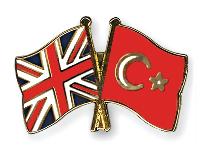| Pages in topic: [1 2] > | France's Hollande calls Japan 'China', interpreter saves day Thread poster: LEXpert
|
|---|
LEXpert 
United States
Local time: 07:00
Member (2008)
Croatian to English
+ ...
| Gül Kaya 
United Kingdom
Local time: 13:00
Turkish to English
+ ...
| I would disagree | Jun 10, 2013 |
I've seen this story on various sites, most of them generally agreeing that the interpreter did a good thing. I tend to disagree. At every stage of every interpreter training I've had however, it's been drummed into me that this is a definite no no. You don't subtract, you don't add and you don't correct. What if Monsieur Hollande, however unlikely it is and for whatever reason, intended to say China instead of Japan? You can't double guess the speaker.
| | | | Erik Freitag 
Germany
Local time: 14:00
Member (2006)
Dutch to German
+ ...
| Perhaps the interpreter acted unconsciously? | Jun 10, 2013 |
Maybe the interpreter corrected Hollande's error unconsciously? Seems quite plausible in a case like this one ...
| | | | | I agree with the last two posts | Jun 10, 2013 |
I agree with the last two posts, with the proviso that the interpreter might justifiably correct an obvious inadvertent error.
The above should not be done in ambiguous cases and especially by junior interpreters or interpreters who aren't particularly familiar with the subject of the discussion.
Also, when an interpreter does that, the interpreter does it as a civil servant or diplomatic official of sorts rather than as an interpreter per se. I would correct a major sc... See more I agree with the last two posts, with the proviso that the interpreter might justifiably correct an obvious inadvertent error.
The above should not be done in ambiguous cases and especially by junior interpreters or interpreters who aren't particularly familiar with the subject of the discussion.
Also, when an interpreter does that, the interpreter does it as a civil servant or diplomatic official of sorts rather than as an interpreter per se. I would correct a major screw-up by someone from my government, but my motivation and my own assessment would be that I was a good citizen rather than a good interpreter.
Also, we need to be vocal on one thing here: whether the interpreter had the right to do so or not (in which we should generally defer to him and to his employers, I think), an interpreter does not have an obligation to verify and "proofread" whatever the speakers say. Interpreters who don't, aren't bad interpreters. They just don't take liberties, but they are not failing in their duties. ▲ Collapse
| | |
|
|
|
| Considering the relationship between China and Japan... | Jun 10, 2013 |
... and the culture of Japan itself and how mistakes are handled, I think it is probably better that the interpreter made a judgement call in this case and corrected the mistake. I think the interpreter may have been aware of this and the subsequent diplomatic fall-out that was prevented. As efreitag suggested, it could also have been corrected subconsciously.
While it is clear that the interpreter did not act according to how an interpreter *should* act (and I do agree that second-... See more ... and the culture of Japan itself and how mistakes are handled, I think it is probably better that the interpreter made a judgement call in this case and corrected the mistake. I think the interpreter may have been aware of this and the subsequent diplomatic fall-out that was prevented. As efreitag suggested, it could also have been corrected subconsciously.
While it is clear that the interpreter did not act according to how an interpreter *should* act (and I do agree that second-guessing the speaker is indeed a dangerous practice - and should not be condoned), I think this is the value that human beings offer over machines - we can make judgement calls and act accordingly depending on the situation. ▲ Collapse
| | | |
Gül Kaya wrote:
I've seen this story on various sites, most of them generally agreeing that the interpreter did a good thing. I tend to disagree. At every stage of every interpreter training I've had however, it's been drummed into me that this is a definite no no. You don't subtract, you don't add and you don't correct. What if Monsieur Hollande, however unlikely it is and for whatever reason, intended to say China instead of Japan? You can't double guess the speaker.
Yes, I agree with you. An interpreter is not supposed to change the content, even if they knew that something was a mistake. They can perhaps stress the wrongly used word so that the speaker becomes aware of the mistake, but the interpreter is not supposed to, or even allowed to, correct any mistakes.
[Edited at 2013-06-10 18:20 GMT]
| | | | | I see what you mean... | Jun 11, 2013 |
Sarai Pahla wrote:
... and the culture of Japan itself and how mistakes are handled, I think it is probably better that the interpreter made a judgement call in this case and corrected the mistake. I think the interpreter may have been aware of this and the subsequent diplomatic fall-out that was prevented. As efreitag suggested, it could also have been corrected subconsciously.
While it is clear that the interpreter did not act according to how an interpreter *should* act (and I do agree that second-guessing the speaker is indeed a dangerous practice - and should not be condoned), I think this is the value that human beings offer over machines - we can make judgement calls and act accordingly depending on the situation.
But I still disagree - I think it would be nice if Hollande had to face the music for his mistakes And besides that, isn't it a rather dangerous precedent? And besides that, isn't it a rather dangerous precedent?
| | | | Balasubramaniam L. 
India
Local time: 17:30
Member (2006)
English to Hindi
+ ...
SITE LOCALIZER | Yes, the interpreter badly slipped up according to me too | Jun 11, 2013 |
The interpreter's, as is the translator's, role is not to take sides. He does not evaluate what he/she is interpreting.
By covering up Hollande's gaffe, he/she presented Hollande in a more erudite manner than he actually was, and in this way misled the Japanese on the true mental capabilities of Hollande, as well as on his grasp of the politics of the region. In diplomacy, people tend to assess others on the basis of bodily gestures and spoken words and base many earth-shaking decis... See more The interpreter's, as is the translator's, role is not to take sides. He does not evaluate what he/she is interpreting.
By covering up Hollande's gaffe, he/she presented Hollande in a more erudite manner than he actually was, and in this way misled the Japanese on the true mental capabilities of Hollande, as well as on his grasp of the politics of the region. In diplomacy, people tend to assess others on the basis of bodily gestures and spoken words and base many earth-shaking decisions on the basis of this assessent. So by presenting Hollande's speech minus the gaffe, the interpreter deprived the Japanese listeners of the opportunity to make a proper assessment of Hollande's understanding of the political situation in the far-east, and he/she could have contributed to their making some serious miscalculations in their decisions concerning their relationship with France and with Hollande.
The interpreter thus failed in his job as an interpreter. But if he was part of the French diplomatic team, then he did serve the interest of France, but at the cost of not properly serving the interests of Japan.
So he/she earns both gratitude (from his French compatriots) and brickbats (from his Japanese listeners).
[2013-06-11 15:28 GMT पर संपादन हुआ] ▲ Collapse
| | |
|
|
|
Ty Kendall 
United Kingdom
Local time: 13:00
Hebrew to English
| Not sure you can infer that much from a Freudian slip | Jun 11, 2013 |
Balasubramaniam L. wrote:
By covering up Hollande's gaffe, he/she presented Hollande in a more erudite manner than he actually was, and in this way misled the Japanese on the true mental capabilities of Hollande, as well as on his grasp of the politics of the region.
It doesn't necessarily say anything about Hollande's mental capabilities or grasp of regional politics. It's just a gaffe, happens to the best of us.
| | | |
Sorry but this is not Mr. "Normal"'s first howler of this kind. He is a repeat offender.
I have never been faced with this sort of situation - at least not at such a level - but, as an interpreter, you have to make instant decisions and maybe the interpreter didn't dare repeat the mistake. Depends who he or she works for.
As to the comment made by Balasubramaniam L., I would simply say that, in view of the press coverage given to the incident, the host country must by now be v... See more Sorry but this is not Mr. "Normal"'s first howler of this kind. He is a repeat offender.
I have never been faced with this sort of situation - at least not at such a level - but, as an interpreter, you have to make instant decisions and maybe the interpreter didn't dare repeat the mistake. Depends who he or she works for.
As to the comment made by Balasubramaniam L., I would simply say that, in view of the press coverage given to the incident, the host country must by now be very familiar with what happened and be able to judge Hollande for the nincompoop he is! ▲ Collapse
| | | |
Balasubramaniam L. wrote:
The interpreter's, as is the translator's, role is not to take sides.
Correcting an obvious slip of the tongue is not "taking sides".
In my opinion, if it is absolutely 100% certain that the error was a slip of the tongue, as in this case, it's OK to correct it. The interpreter's (and translator's) job is to convey the speaker's (writer's) message. If the message was obviously about Japan, then you convey that and don't gleefully spit out "China" just to make sure to embarrass your client. The article has it right: the interpreter "[rendered] the sentence as it had been intended" - not "as it came out of Hollande's mouth".
Now, if the speaker made an error that betrays his lack of knowledge or understanding (consistently calling a kingdom a republic or repeatedly referring to a river as a lake) then your job would be to stick to what the speaker said and let his interlocutors draw their conclusions - or correct him.
[Edited at 2013-06-12 07:40 GMT]
| | | | Balasubramaniam L. 
India
Local time: 17:30
Member (2006)
English to Hindi
+ ...
SITE LOCALIZER | How can the interpreter know? | Jun 12, 2013 |
FarkasAndras wrote:
Balasubramaniam L. wrote:
The interpreter's, as is the translator's, role is not to take sides.
Correcting an obvious slip of the tongue is not "taking sides".
In my opinion, if it is absolutely 100% certain that the error was a slip of the tongue, as in this case, it's OK to correct it. The interpreter's (and translator's) job is to convey the speaker's (writer's) message. If the message was obviously about Japan, then you convey that and don't gleefully spit out "China" just to make sure to embarrass your client. The article has it right: the interpreter "(rendered) the sentence as it had been intended" - not "as it came out of Hollande's mouth".
How can the interpreter know that it was an obvious gaffe and not an intentional remark by Hollande?
It is quite possible to play the devil's advocate here.
For example, Hollande, aware of the intense rivalry between Japan and China, and the immense power that both these nations wield on global and trade-related matters which greatly impact France, did not want to anger in anyway China, but at the same time wanted to please his Japanese hosts too. So he opted for this inelegant slip of tongue to convey that he also had China in his mind while visiting Japan, and by visiting Japan he is not being hostile to China.
If the Japanese took this stance rather badly, Hollande could always wriggle away by saying that this was a slip of the tongue. But the interpreter by being oversmart, foreclosed this option for the poor French politician.
Or if we concede that Hollande is not that much of an intellectual to think up such a clever ruse, the slip of the tongue does reveal the unexpressed thinking in the mind of Hollande, which is diplomatically significant for Japan. The China reference that slipped off Hollande's tongue indicates that even while being in Japan, China was very much there in the mind of the French politician, which would give important clues to Japan on the importance France placed on China, and this knowledge could help them to leverage on later discussions.
The interpreter squashed all these possibilities by jumping the gun.
And, don't forget the indirect diplomatic fallout of this slip up on China, which would be immensely pleased at the slight inflicted on Japan and might feel a closeness to Hollande for rewarding it with this warm feeling (at the slight of their arch rival Japan), and also feeling quite smug about how an important French politician is so enamoured of it as to slip up in its favour while talking about Japan. Who knows, Hollande could actually be calculating on encashing on this warm feeling when he later trips to China. But the interpreter, by presenting a watered down, sanitised version of his speech, ruled out all these diplomatic possibilities.
Or if we want to be less charitable on Hollande, it is also possible to argue tht China received important indicators about the extend to which France is in awe of it, and extract diplomatic pounds of flesh in future negotiations with France on the basis of this.
All these are hypothetical scenarios, but who can deny their possibility?
Politicians and diplomats frequently resort to such gimmicks, which have sinister unspecified intentions of which the interpreter can have no prior knowledge. So by trying to convey what the interpreter thinks is the correct message, he may actually be covering up several shades of hidden meanings in the original speech.
So the best policy for both interpreters as well as translators is to present the ugly in its full ugliness and not try to give it a bit of photoshopping.
[2013-06-12 14:41 GMT पर संपादन हुआ]
| | |
|
|
|
Ty Kendall 
United Kingdom
Local time: 13:00
Hebrew to English
| Professional judgement, common sense, take your pick | Jun 12, 2013 |
Balasubramaniam L. wrote:
How can the interpreter know that it was an obvious gaffe and not an intentional remark by Hollande?
Professional judgement. Professionals linguists get paid for that too as well as their linguistic talents.
During a news conference, Mr Hollande, speaking in French, referred to the Algerian hostage crisis in January in which 10 Japanese nationals died, saying he had "expressed the condolences of the French people to the Chinese people".
There's no need for a devil's advocate. Why would the French president express condolences to the Chinese for the death of 10 Japanese nationals? It's called logic. Embrace it.
| | | | Balasubramaniam L. 
India
Local time: 17:30
Member (2006)
English to Hindi
+ ...
SITE LOCALIZER | That is the point | Jun 12, 2013 |
Ty Kendall wrote:
Why would the French president express condolences to the Chinese for the death of 10 Japanese nationals? It's called logic. Embrace it.
Even while in Japan, Hollande's mind is full of China and the Chinese, which is the reason behind the slip up.
This is important unsaid information that is diplomatically useful to both Japan as well as China. And the interpreter masked it.
| | | | Ty Kendall 
United Kingdom
Local time: 13:00
Hebrew to English
Balasubramaniam L. wrote:
Even while in Japan, Hollande's mind is full of China and the Chinese, which is the reason behind the slip up.
This is important unsaid information that is diplomatically useful to both Japan as well as China. And the interpreter masked it.
1. You can't possibly know that. That's what we call "reading too much into it".
2. I disagree it is "important unsaid information, diplomatically useful".
| | | | | Pages in topic: [1 2] > | To report site rules violations or get help, contact a site moderator: You can also contact site staff by submitting a support request » France's Hollande calls Japan 'China', interpreter saves day | Pastey | Your smart companion app
Pastey is an innovative desktop application that bridges the gap between human expertise and artificial intelligence. With intuitive keyboard shortcuts, Pastey transforms your source text into AI-powered draft translations.
Find out more » |
| | TM-Town | Manage your TMs and Terms ... and boost your translation business
Are you ready for something fresh in the industry? TM-Town is a unique new site for you -- the freelance translator -- to store, manage and share translation memories (TMs) and glossaries...and potentially meet new clients on the basis of your prior work.
More info » |
|
| | | | X Sign in to your ProZ.com account... | | | | | |












